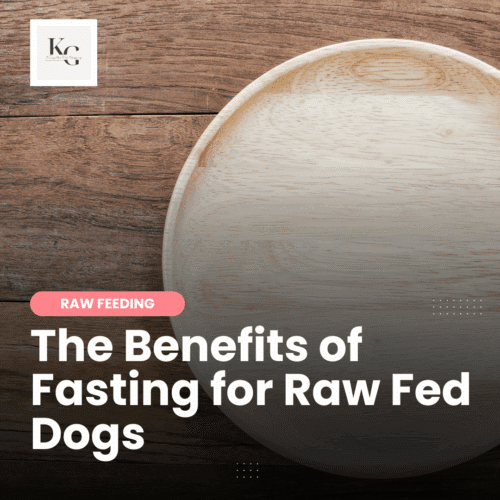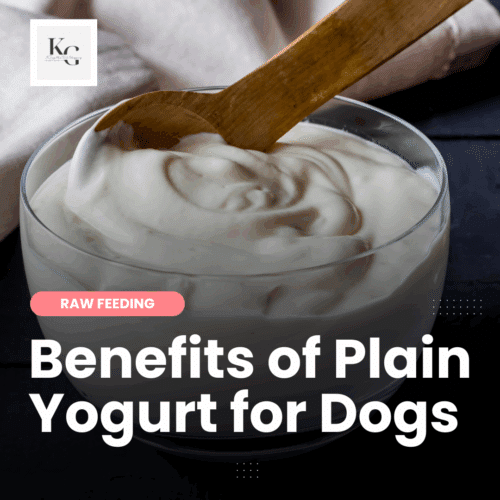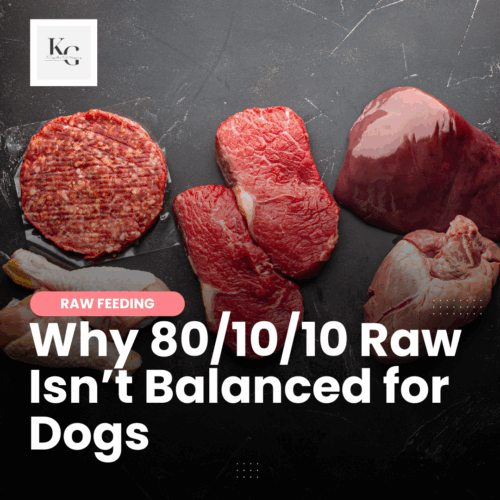Keep the Tail Wagging is supported by pet parents. I occasionally earn a commission (at no additional cost to you) when you click through an affiliate link to one of my favorite products. Thank you for your support. Read More
B vitamins are a group of essential nutrients that play a crucial role in dogs' overall health and well-being. They are involved in various processes in the system, including energy metabolism, nervous system function, and healthy skin and coat maintenance. As my dogs age, I notice changes in their energy, mobility, and appetite (taste, texture, and temperature). This and Rodrigo's history of gut health issues made me curious about the possible need for additional B vitamins in his diet.
Rodrigo was diagnosed with exocrine pancreatic insufficiency (EPI) in 2019. His pancreas no longer produces sufficient digestive enzymes, and as a result, he cannot absorb nutrients without the aid of a natural porcine supplement. Before purchasing a vitamin B complex supplement, I did some homework; this article covers what I learned and adding additional vitamin B to my dog's diet.
Understanding B Vitamins
B vitamins are a group of water-soluble vitamins that play essential roles in various functions within the body. There are eight distinct B vitamins, each with specific functions and health benefits. The B vitamins include:
- Thiamin (B1): energy metabolism, nerve function, and carbohydrate metabolism
- Riboflavin (B2): energy production, cell growth, and the metabolism of fats, carbohydrates, and proteins
- Niacin (B3): energy production, DNA repair, and the maintenance of healthy skin, nerves, and digestion
- Pantothenic Acid (B5): energy production, hormone synthesis, and the formation of red blood cells
- Pyridoxine (B6): brain development, the synthesis of neurotransmitters, protein metabolism, and the production of red blood cells
- Biotin (B7): energy metabolism, fatty acid synthesis, and the maintenance of healthy skin, hair, and nails
- Folate (B9): cell division, DNA synthesis, red blood cell formation
- Cobalamin (B12): energy production, red blood cell formation, DNA synthesis, and nerve function
B vitamins are often found in various foods, including meat, fish, dairy products, leafy green vegetables, fruits, and culinary mushrooms (oyster and shiitake). While each B vitamin has specific functions, they often work synergistically to support overall health and well-being.
Senior Dogs May Need More B Vitamins
Senior dogs may benefit from additional B vitamins for their health and well-being. As dogs age, their nutritional needs may change, and certain factors can impact their B vitamin requirements. Here are some reasons why senior dogs may need more B vitamins:
Reduced Absorption
Senior dogs may have reduced absorption of nutrients due to age-related changes in their digestive system. This can affect the absorption of B vitamins from their food. Supplementing with B vitamins can help ensure an adequate intake.
Decreased Appetite
Older dogs may have a reduced appetite, leading to decreased nutrient intake. B vitamins play a crucial role in energy metabolism and maintaining overall vitality. Providing additional B vitamins can support their energy levels and help compensate for any nutritional deficiencies.
Cognitive Function
Senior dogs may experience cognitive decline similar to mild cognitive impairment or dementia in humans. Supplementing with B vitamins, including vitamin B12, may support cognitive function and help maintain mental sharpness.
Immune System Support
As dogs age, their immune systems may weaken, making them more susceptible to infections and diseases. Adequate B vitamin intake can help support the immune response and overall immune function.
It's important to note that senior dogs' specific B vitamin needs can vary depending on various factors, including their health status, diet, and individual requirements. It's recommended to consult a veterinarian or certified nutritionist before starting any supplementation to ensure the proper dosage and formulation suitable for your senior dog's needs.
You may also learn more about the levels of B vitamins being absorbed by your dog by investing in a hair analysis test.
Side Effects of B Vitamins for Dogs
While B vitamins are generally considered safe for dogs, pet owners need to be aware of potential side effects that could arise from excessive supplementation.
Constipation / Black Tarry Stool
When dogs are initially given a Vitamin B supplement, owners may notice signs of constipation or see black tarry stools in the yard. Typically, these effects are transient and may subside as a dog's system becomes accustomed to the medication. However, if any of these effects persist or worsen, it's important to contact the veterinarian.
Upset Stomach
An upset stomach is one of the most common side effects of excessive B vitamin supplementation. This may manifest as nausea, vomiting, or diarrhea. B vitamins, particularly in high doses, can irritate the gastrointestinal tract and may lead to digestive disturbances.
Allergic Reaction
In rare cases, dogs may develop an allergic reaction to B vitamins. This can result in symptoms like itching, hives, swelling of the face or throat, and difficulty breathing. If you notice any signs of an allergic reaction, immediately discontinue using B vitamin supplements and seek veterinary care.
Thiamine (B1) Overdose
Excessive intake of thiamine (vitamin B1) can lead to thiamine toxicity in dogs. This is more commonly observed if thiamine supplements designed for human use are administered to dogs. Thiamine toxicity can cause neurological symptoms such as weakness, staggering, seizures, and, in severe cases, coma. It is important to provide B vitamins specifically formulated for dogs and follow the recommended dosage.
Also, when I do meal prep, I no longer mix mussels and other seafood that contains thiaminase with the 80/10/10 blends I create. Thiaminase is an enzyme that metabolizes thiamin (B1), reducing the amount available in the blend.
Interference with Medications
Certain B vitamins, such as vitamin B6, can interact with certain medications. For instance, vitamin B6 can potentially reduce the effectiveness of certain anti-seizure medications. It is crucial to inform your veterinarian about any B vitamin supplements your dog takes to ensure compatibility with other medications.
Imbalance with Other Nutrients
Excessive supplementation of one B vitamin can create an imbalance with other B vitamins, leading to potential deficiencies or excesses. B vitamins work synergistically, and an imbalance can disrupt their optimal functioning in the body.
Feeding a Diet Formulated for Seniors
It's also important to provide a nutritious fresh food diet that has been formulated for all life stages or senior dogs. If you're feeding commercial fresh food (raw, cooked, freeze-dried), and you're uncertain if it's sufficient for your senior dog, contact the company or work with a canine nutritionist.
If you're making homemade dog food, run your recipes by a canine nutritionist or through Animal Diet Formulator software to confirm the diet provides the correct balance of nutrients for a senior dog.
I feed my senior dogs a combination of DIY raw, homecooked, commercial raw, and premade cooked dog food, ensuring that medicinal mushrooms are added to the bowl because they offer many benefits, including being a healthy source of fiber and antioxidants:
- FIBER: supports improved digestive health; as dogs get older, their digestive system may slow down, and adding more fiber (vegetables, chia seeds, pureed pumpkin/sweet potato) helps to keep things moving.
- ANTIOXIDANTS: as our dogs age, they become prone to mobility issues and disease. Consuming certain foods can aid in reducing inflammation, slowing down cellular aging, and even preventing diseases such as cancer.
Regular veterinary check-ups can help assess your senior dog's health and nutritional status, and adjustments can be made accordingly. Understanding what your dog needs nutritionally at every stage will empower you to make better choices for your dog. Consider taking a course in dog nutrition or signing up for a wellness membership, which provides access to a DIY workshop and monthly nutrition consultations.
Foods Rich in B Vitamins
If you'd like to avoid supplementation, the following foods are rich in B vitamins and serve as a healthy addition to a dog's diet:
Liver: Liver, particularly beef liver, contains high levels of vitamin B12, as well as other B vitamins such as thiamine (B1), riboflavin (B2), niacin (B3), pantothenic acid (B5), pyridoxine (B6), and folate (B9). It is important to note that liver should be fed in moderation to dogs due to its high vitamin A (fat-soluble) content, and over-feeding can lead to diarrhea.
Fish: Fish, such as salmon, mackerel, and trout, are rich in vitamin B12, niacin (B3), and pyridoxine (B6). Canned fish like sardines and mackerel, which often include the bones, also provide a good source of calcium and vitamin D.
Shellfish: Shellfish, like mussels and oysters, are high in vitamin B12, riboflavin (B2), and niacin (B3). Oysters, in particular, are known for their extremely high vitamin B12 content.
Eggs: Eggs are an excellent and easily accessible source of B vitamins, especially the egg yolk. They contain a range of B vitamins, including riboflavin (B2), vitamin B12, folate (B9), and biotin (B7).
Meat: Different types of meat, such as beef, chicken, and pork, are good sources of vitamin B12, niacin (B3), and pyridoxine (B6).
Dairy Products: Some dairy products, like raw goat's milk, cheese, and plain yogurt, contain B vitamins such as riboflavin (B2), vitamin B12, and pantothenic acid (B5). Not all dogs can tolerate dairy products. My dogs do well on raw goat's milk and cow kefir, but plain yogurt can be too rich, so I feed it less often.






